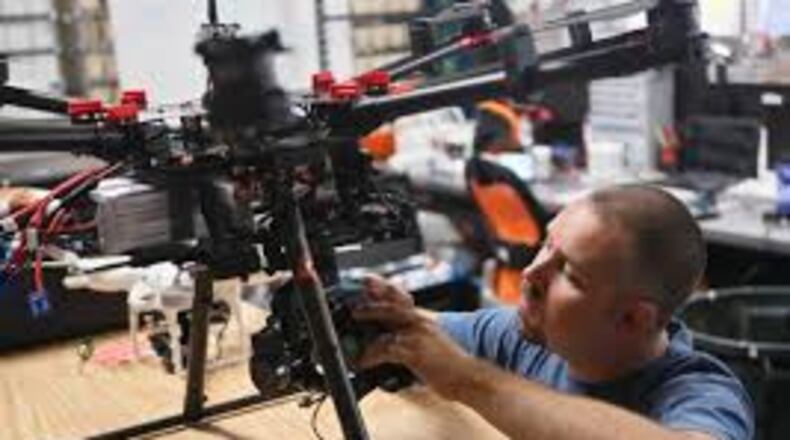Legislation passed by the Georgia Senate that would ban weaponized drones and create a state drone commission faces some uncertainty as the legislative session reaches its final days this week.
The bill passed by the Senate includes language that would make it illegal to possess, operate, sell, transport or make a drone equipped with a weapon, with the exception of U.S. military operations or federal research contracts.
It also includes language to preempt local ordinances regulating the operation or testing of drones that are adopted after April 1, 2016.
"In essence what it does is prevent a patchwork of ordinances across the state," said Rep. Kevin Tanner, R-Dawsonville, the bill's original lead sponsor in the House. "If Amazon wants to make deliveries using drones, then they're not going to come to Georgia if every single city and county across our state has different rules on how to use drones."
And the bill would create the Georgia Unmanned Vehicle Systems Commission, made up of members of the Legislature, governor appointees, other government officials and industry representatives. The commission would focus on economic benefits and development of the unmanned vehicle systems industry in Georgia, as well as issues with privacy and safety.
But eliminated from the bill passed by the Senate compared to an earlier version of HB 779 are provisions limiting law enforcement use of drones for gathering evidence in a private place, restricting the launch of drones from someone else's private property, restrictions on drones flown when they could cause a hazard to drivers and restrictions on using drones for hunting or fishing or to prevent hunting or fishing, Tanner pointed out.
"I think we've got some things to work through," Tanner said. "I anticipate we will make some changes to what the Senate did... and send it back. And if the Senate doesn't agree, then we'll end up in conference and try to work out the differences."
From the unmanned aircraft industry perspective, Hall Booth Smith attorney Elizabeth Wharton said the Senate version of the bill makes "significant progress" in its focus on growing the industry compared to the first version of the bill.
The creation of a commission "gets to the true heart of the issue," to "create frameworks" to integrate the unmanned aircraft industry, Wharton said, "rather than looking to legislators or elected officials who by nature don't always have all the information or the technical expertise."
Credit: Kelly Yamanouchi
Credit: Kelly Yamanouchi
But Tanner said his top priorities for the legislation are public safety, privacy and promoting the industry.
"I think we just also need to listen to the concerns that have been raised... making sure we promote the privacy and safety of our citizens, while at the same time promoting the industry," Tanner said.
He said it's "difficult to say" what the chances are of final passage of the legislation.
"I think we just have to enter into the conversation... and see where we end up," Tanner said.
About the Author
Keep Reading
The Latest
Featured




